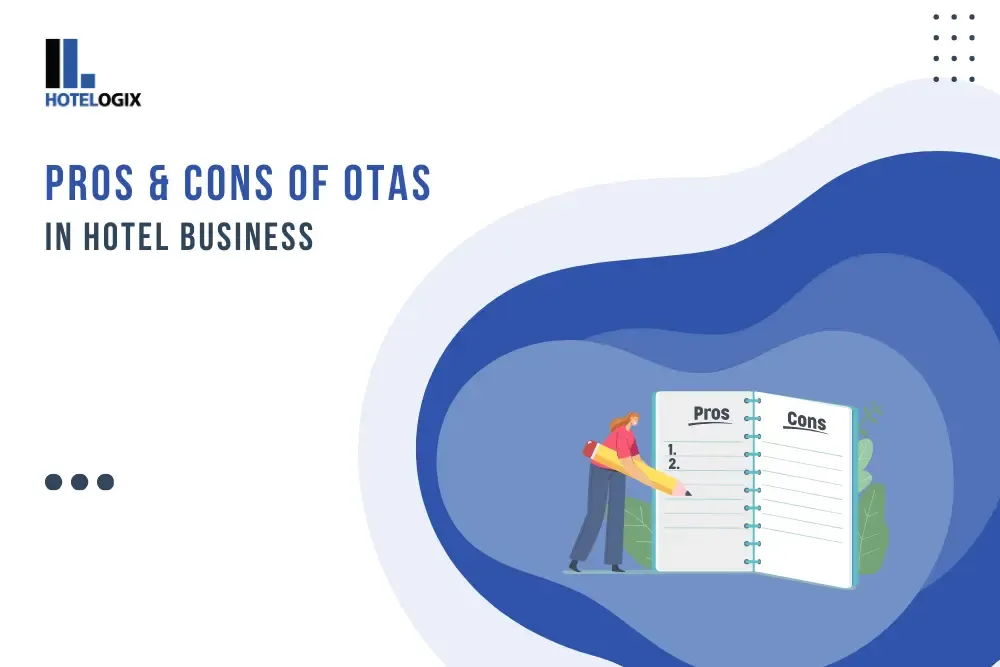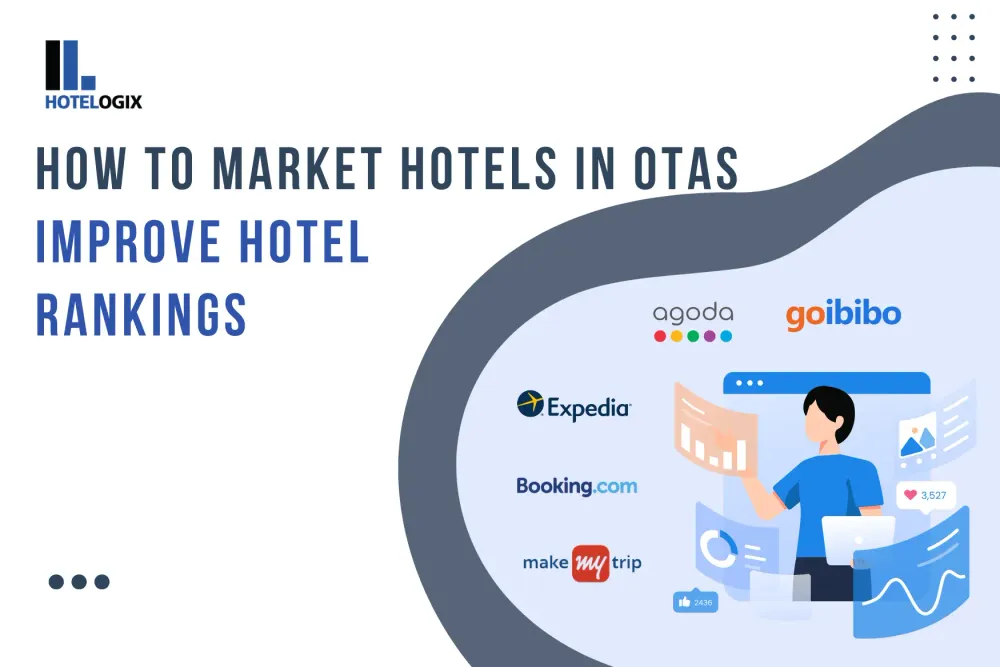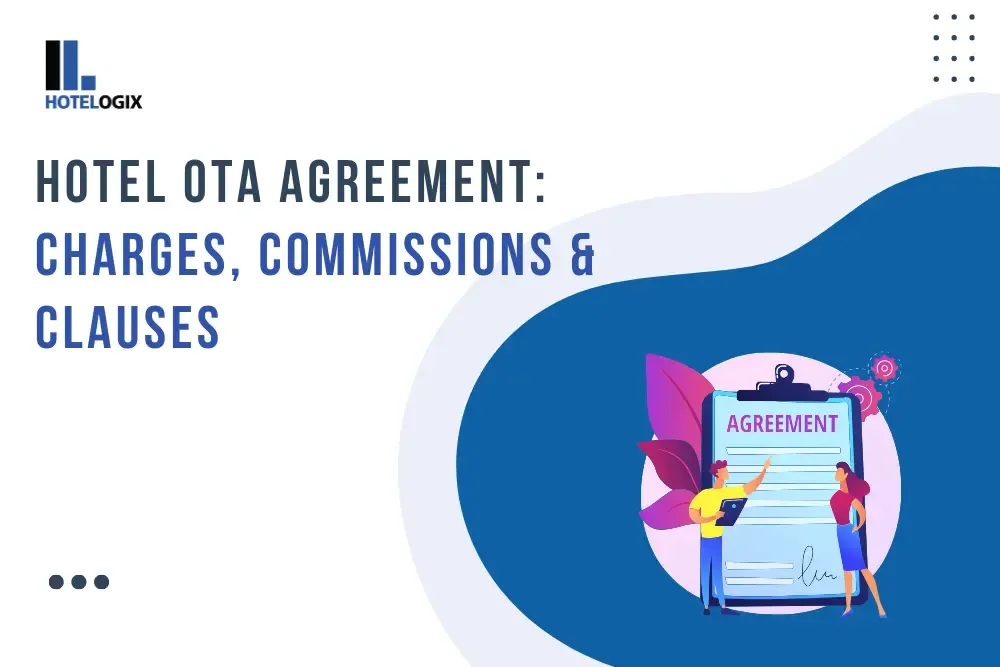Online Travel Agencies (OTAs) are an essential part of the modern hotel industry, allowing hotels to reach a global audience and offering travelers the convenience of booking accommodations from anywhere, anytime. However, they come with both advantages and disadvantages. This article will explore these pros and cons of OTAs in detail:
What Are Online Travel Agencies?
Online travel agencies are third-party platforms that allow travelers to book hotels, flights, car rentals, and other travel-related services. Popular OTAs include Booking.com, Expedia, and Airbnb. These platforms allow users to compare prices and amenities, making it easier to find and book accommodations at the best prices available on the Internet.
Advantages of Online Travel Agencies
Increased Visibility: OTAs offer increased visibility to hotels. They attract users across the globe, giving hotels access to a much larger audience than they could reach on their own. They are especially beneficial for small and independent hotels, in particular giving them global visibility.
Access to New Markets
Hotels that use online travel agencies to increase their presence easily tap new markets. They allow hotels to list their properties in multiple languages and currencies, making booking easier for foreign guests.
User-Friendly Booking Process
OTAs offer an easy and user-friendly booking experience for travelers. With just a few clicks, guests can book a hotel room. This ease of use increases the likelihood of bookings, particularly for guests making last-minute travel plans.
Disadvantages of Online Travel Agencies for Hotels
High Commission
One of the major drawbacks of using OTAs is their high commission fees. They charge hotels between 15% and 30% for each booking made through their platform, which can significantly cut into smaller hotels' profits.
Limited Control Over Guest Experience
When guests book through OTAs, hotels have less control over the booking process and the guest experience. For example, some OTAs don't allow hotels to communicate directly with guests before arrival, making it difficult to offer personalized service or special requests. This lack of control can hurt a hotel's reputation if something goes wrong during the stay.
Impact on Brand Loyalty
Hotels that rely too heavily on OTAs risk losing direct customer relationships. Since many travelers book based only on price or location, they may not develop loyalty to a particular hotel brand. Instead, they remain loyal to the OTA, which can reduce the hotel's ability to attract repeat business.
Why Hotels Need OTAs
OTAs provide an easy way to hotels to fill rooms, especially during off-peak seasons. They also help hotels compete with larger chains by giving them a platform to showcase their offerings to a wider audience.
Increased Booking Volume
OTAs drive a significant part of bookings of smaller or independent hotels. Without the reach offered by OTAs, these hotels would struggle to fill their rooms.
Effective Marketing Tool
OTAs also act as an effective marketing tool. By listing on OTAs, hotels can benefit from the platform's advertising efforts, such as search engine optimization (SEO) and pay-per-click advertising. This helps hotels get noticed by potential guests without having to invest heavily in their own marketing campaigns.
Why Hotels Dislike OTAs
While online travel agencies are beneficial, hotels disapprove of them because of their associated restrictions.
Reduction in Profit Margins
The commission charged by OTAs can reduce a hotel's profit margins. Hotels that rely too heavily on OTAs may struggle to maintain profitability, especially during low demand.
Less Control Over Pricing
OTAs often require hotels to adhere to strict pricing policies, limiting the hotel's ability to offer discounts or special deals to guests who book directly. This can make it harder for hotels to encourage direct bookings and build brand loyalty.
How Are Hotel Rewards Working Against OTAs?
Many hotel chains have introduced loyalty programs to encourage direct bookings and reduce dependence on OTAs. These programs offer rewards such as free nights, room upgrades, and other perks unavailable through OTAs. This strategy helps hotels build stronger relationships with guests and increase brand loyalty.
For example, Marriott's Bonvoy program offers members exclusive rates and the ability to earn points for every stay, which can be redeemed for free nights or upgrades. This incentivizes travelers to book directly through the hotel's website rather than using an OTA.
How Can a Hotel Eliminate OTAs?
While it may be challenging for hotels to eliminate the use of OTAs, there are strategies they can use to reduce their dependence on these platforms.
Enhance Direct Booking Channels
Hotels can invest in improving their websites and booking engines to make direct bookings more attractive to guests. Offering special deals, exclusive rates, and loyalty points for direct bookings can help hotels steer customers away from OTAs.
Leverage Social Media and Email Marketing
By building a strong presence on social media and utilizing email marketing campaigns, hotels can engage with potential guests directly. This allows hotels to create personalized offers and communicate the benefits of booking directly with the hotel.
Conclusion
Online Travel Agencies have both advantages and disadvantages for hotels. While they provide valuable exposure and access to new markets, they come at a high cost in terms of commission fees and control over guest interactions. Hotels that rely too heavily on OTAs risk losing profit margins and customer loyalty. However, by balancing OTA use with efforts to drive direct bookings, hotels can maximize their revenue and build stronger relationships with guests.





